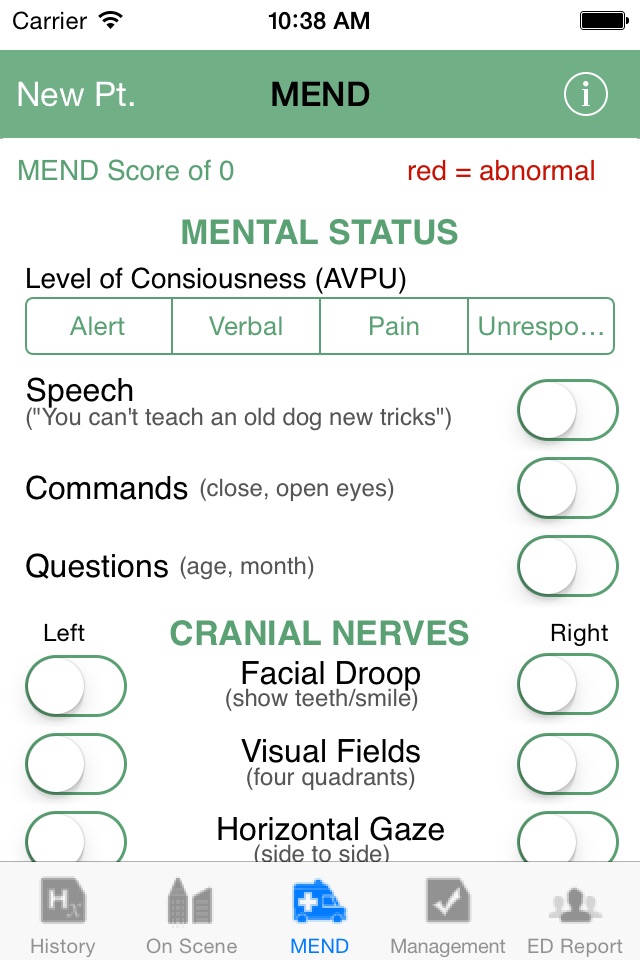
The Miami Emergency Neurologic Deficit (MEND) Examination is a focused neurologic assessment tool to aid healthcare providers in rapid identification of patients with stroke. The exam incorporates the Cincinnati Prehospital Stroke Scale (CPSS), and has additional components from the NIH Stroke Scale (NIHSS).
The MEND EMS application facilitates the organization of detection and management of the stroke patient in the Prehospital setting. The application is divided into tabs that allow the user to navigate in order from the History to the CPSS, the MEND exam, management considerations and references and ED report. The user is initially prompted to choose whether this is a new patient or to resume the information on the current patient.
The MEND exam was developed by a group of stroke neurologists, emergency physicians, neurology nurses, and paramedics to allow additional observations that permit paramedics to expand the examination in order to assess stroke severity and identify the stroke syndrome. It is also a useful tool for communicating effectively with the receiving hospital and for following the patient from initial exam through hospital admission (there is a Hospital version of the MEND exam for nurses coming soon).
The recommendation is that EMS personnel should perform the CPSS on scene and begin transport, then perform the expanded MEND exam en route to minimize transport delays. The MEND exam is taught as part of a more comprehensive stroke curriculum, Advanced Stroke Life Support.
The application has the following components:
History
-Incorporates age, sex, chief complaint, time last seen normal, and important early questions including witness information.
On Scene Cincinnati Prehospital Stroke Scale (CPSS)
-The components on the CPSS are provided in a checklist format
MEND Examination
- The components on the MEND exam are provided in a checklist format
Management / Vital Signs / References
-Consider Initiating Stroke Alert
-Do not allow aspiration
-Check blood glucose
-References: Stroke Mimics & t-PA exclusion criteria
ED Report
-This screen summarizes all of the data that has been collected into an organized bullet point list for clear radio communication with the receiving hospital emergency department.

